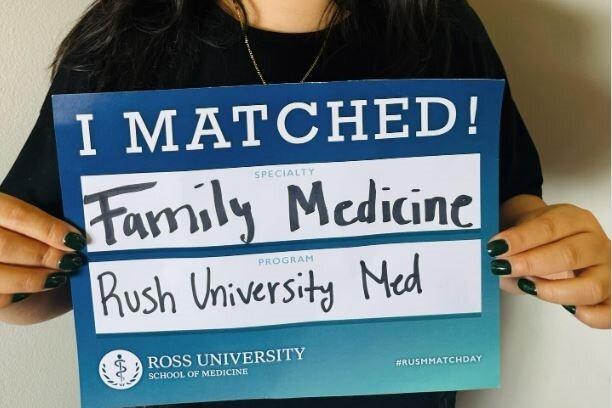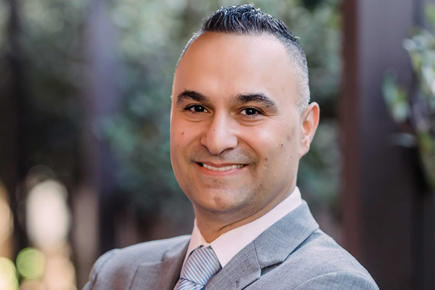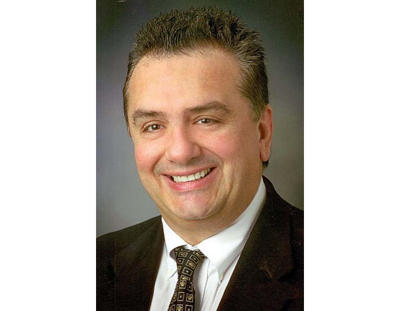RUSM: What attracted you to RUSM?
Kendall: My wife and I were married for a year prior to applying for medical school and we wanted to attend the same school. Ross [University School of Medicine] interviewed us both and made us feel welcome by inviting us to interview on the same day and meeting with us individually and as a couple. It was a great experience and we knew that we would fit in well.
RUSM: How did you prepare for the NRMP® Match?
Kendall: We began preparing on the first day of medical school, by hunkering down and studying constantly. We knew we would have to work hard to get the residencies we wanted (my wife is a general surgery resident), and so we would wake up early every morning Monday through Friday, head to the classroom to study before class, stay in class from 8 a.m. - 5 p.m., and then stay after class and continue to study until 10 p.m. Saturdays we studied from 7 a.m. - 7 p.m. Sundays we would still study, but we also tried to rest and enjoy the island.
Once off the island, we put all our effort into excelling at our rotations. During interview season, we attended our respective national meetings to attend the residency fair and meet with programs from around the country. We applied to a lot of programs since we were couples matching. We each had a call and email list, and we would reach out to each program every one to two weeks until we got an interview, or until they gave us an absolute “no.” My wife ended up with 12 general surgery categorical interviews, I ended up with 18 emergency medicine interviews. Even after all that, the couples-match did not work for us, as we got ranked to match at different places. Fortunately, it all worked out in the end.
RUSM: What are the top two or three ways RUSM helped prepare you for your residency position?
Kendall: Ross [University School of Medicine] instilled a mindset that you have to work hard to achieve what you want; nothing is just handed to you on a silver platter.
The hospital at which we rotated, which was in Saginaw, Mich., was a great place to complete rotations. I got to do over 10 central lines, 10 arterial lines, 15 intubations, and a couple of other procedures, which put me well ahead of the game for residency.
Ross [University School of Medicine] also teaches you to think and work independently.
RUSM: What are the key factors that led to you achieving a chief resident position?
Kendall: I am personable, positive and easy to work with. I have always enjoyed leadership positions, and feel comfortable in those roles.
RUSM: What additional responsibilities have you assumed since becoming a chief resident?
Kendall: I'm on a couple of different committees. My wife and I are completing residencies in different states, so our 4-year-old son and I are here in Dallas, so that is also a lot of responsibility!
RUSM: What’s next for you?
Kendall: I have a job lined up at an independent Emergency Medicine group in southeast Michigan, where my wife is a resident. Our son and I will join her there in July!
Get Started Today
You'll submit your completed Ross Med application online in our application portal.
RUSM alumnus Brian Kendall, MD, Class of 2013, is Chief Resident in the Department of Emergency Medicine at The University of Texas Southwestern Medical Center in Dallas.
The information and material contained in this article and on this website are for informational purposes only and should not be considered, or used in place of, professional medical advice. Please speak with a licensed medical provider for specific questions or concerns. Ross Med is not responsible for the information maintained or provided on third-party websites or external links.



